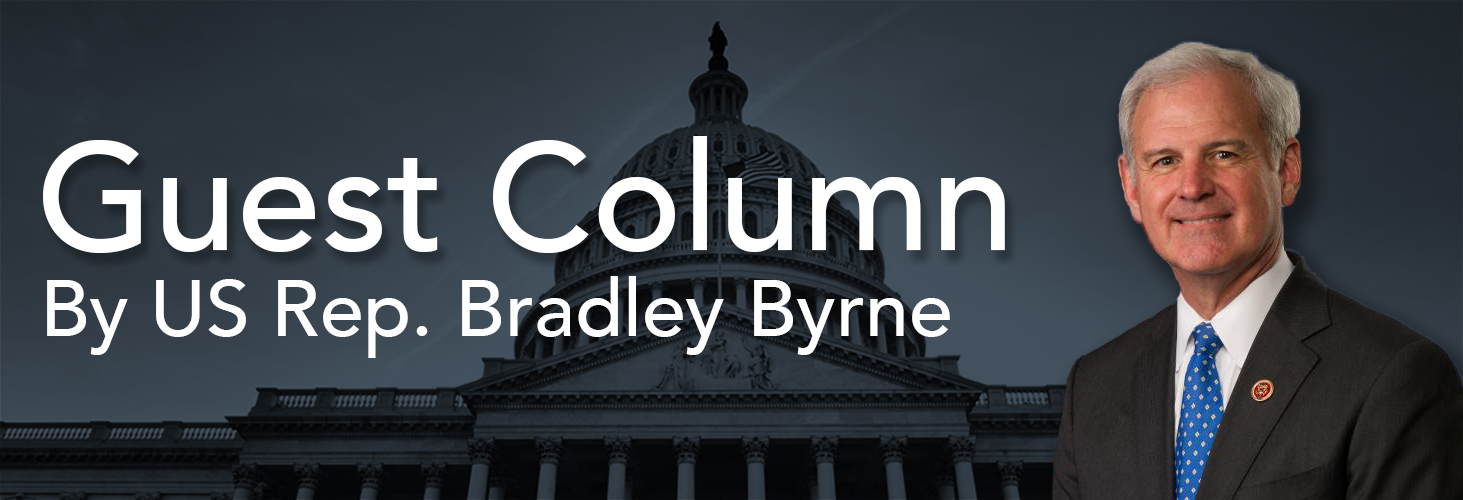By U.S. Representative Bradley Byrne (AL-1)
The city of Ramadi is the capital of the Anbar province in Iraq and serves as a strategic location on the Euphrates river. In 2006, Ramadi was the home to a critical battle between United States forces and Al-Qaeda. Ultimately, the U.S. forces prevailed. Now, almost nine years later, Ramadi has fallen into the hands of Islamic extremists known as the Islamic State of Iraq and the Levant or ISIL.
By now, all Americans have likely heard of this evil, radical group who has taken control over large portions of Iraq and Syria. ISIL relies on extraordinarily brutal tactics like burning their prisoners alive and beheading those who simply have different beliefs than their own. ISIL has also made clear that their goal is to form an Islamic State that spans across the Middle East.
Recently, the U.S. backed forces in Iraq have suffered significant defeats, including the fall of Ramadi. While there is debate over who is responsible, the fall of Ramadi should serve as a serious wake up call.
Since the fight against ISIL started last year, I have repeatedly expressed concerns that the Obama administration has not fully outlined a strategy to defeat this radical enemy. When I traveled to the Middle East as part of a Congressional Delegation last year, it was clear that our allies in the region are committed to working together to defeat ISIL, but they were desperately seeking leadership.
As Ramadi was falling into enemy hands, President Obama was delivering the commencement address at the United States Coast Guard Academy in Connecticut. He focused his remarks on “a serious threat to global security” and “an immediate risk to our national security.” Unfortunately, the President wasn’t talking about the fight against ISIL, but instead he was focused on climate change.
This one example just further demonstrates why I have a hard time believing that the Obama administration is doing enough to defeat ISIL. President Obama and members of his national security team are always quick to talk about how they brought the Iraq war to an “end,” but they often gloss over the fact that the country is once again falling into enemy hands.
President Obama isn’t the only one who needs to do more to help combat ISIL. In fact, Congress needs to pass a new Authorization for the Use of Military Force (AUMF) that is specific to the fight against ISIL. An AUMF serves as the legal framework that allows U.S. forces to operate in a deployed status for more than 60 days.
Currently, the military is operating under an AUMF that was passed in 2001 when the War on Terror first began. I strongly believe our military could benefit from a new AUMF that specifically outlines the goals and strategies for defeating ISIL.
Earlier this year, President Obama submitted a proposed AUMF to Congress, but it was far too restrictive. It was clear that President Obama was more interested in telling our military all the things they cannot do instead of actually outlining a strategy to defeat our enemy. Unfortunately, the debate on an AUMF has drawn to a halt in Congress, and that’s a real shame.
Our military men and women deserve a clear strategy in the fight against ISIL. That’s why I recently signed a letter to House Speaker John Boehner urging him to bring an AUMF up on the House Floor for debate. This is a tough issue and it may take some time to get an AUMF that actually works, but we owe it to our military and their families to pass a new AUMF.
I am going to keep pushing the Obama administration to put forward a long-term strategy to defeat these Islamic extremists, and I will continue to urge Speaker Boehner to bring an AUMF up for a vote in the House. A clear strategy and appropriate resources are critical components if the United States is to defeat ISIL and their radical ideology.















































